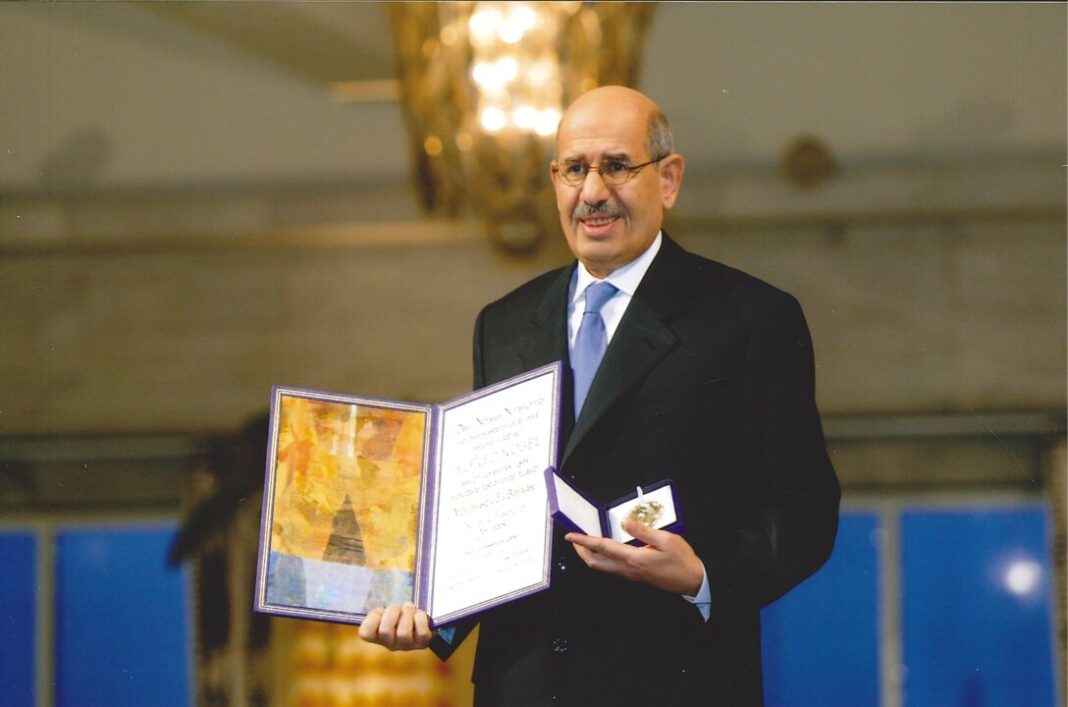The Nobel Prize is a prestigious international accolade awarded annually, recognizing significant contributions to humanity across various fields, including Physics, Chemistry, Medicine, Literature, Peace, and Economic Sciences.
Founded by the will of Alfred Nobel, a Swedish inventor and philanthropist, the prize was established in 1895 and first awarded in 1901.
The Nobel Prize is important because it honors individuals and organizations for their outstanding achievements and promotes awareness and appreciation of advancements that benefit humanity.
Since the establishment of the Nobel Prizes in 1901, there have been over 20 Arab Nobel laureates. This includes individuals from countries such as Egypt, Lebanon, Iraq, and Tunisia.
Mohamed Anwar Al-Sadat, the President of Egypt, made history in 1978 when he became the first Arab to receive the Nobel Peace Prize. He was awarded for his vital role in signing the Camp David Accords, which laid the groundwork for peace between Egypt and Israel.
The Camp David Accords were significant as they marked the first time an Arab nation formally recognized Israel, leading to the normalization of diplomatic relations between the two countries.
Sadat’s move was met with both praise and criticism and his Nobel Peace Prize was a symbol of hope for future peace initiatives in the Arab world.
The literary world has seen remarkable Arab contributions, with Naguib Mahfouz becoming the first Arab to win the Nobel Prize in Literature in 1988. Mahfouz’s rich storytelling and profound narratives reflect the complexities of Arab society, exploring themes of identity, social change, and the human experience.
His works, particularly the acclaimed “Cairo Trilogy,” delve into the lives of ordinary Egyptians, capturing the nuances of their struggles, aspirations, and cultural heritage.
Through his characters and plots, Mahfouz provided insightful commentary on the socio-political landscape of Egypt and the broader Arab world, addressing issues such as colonialism, modernization, and the quest for meaning in a rapidly changing society.
Mahfouz’s writing style is characterized by its depth and realism, often blending the personal with the political. His ability to evoke a sense of place and time has made his stories resonate with readers both in the Arab world and internationally.
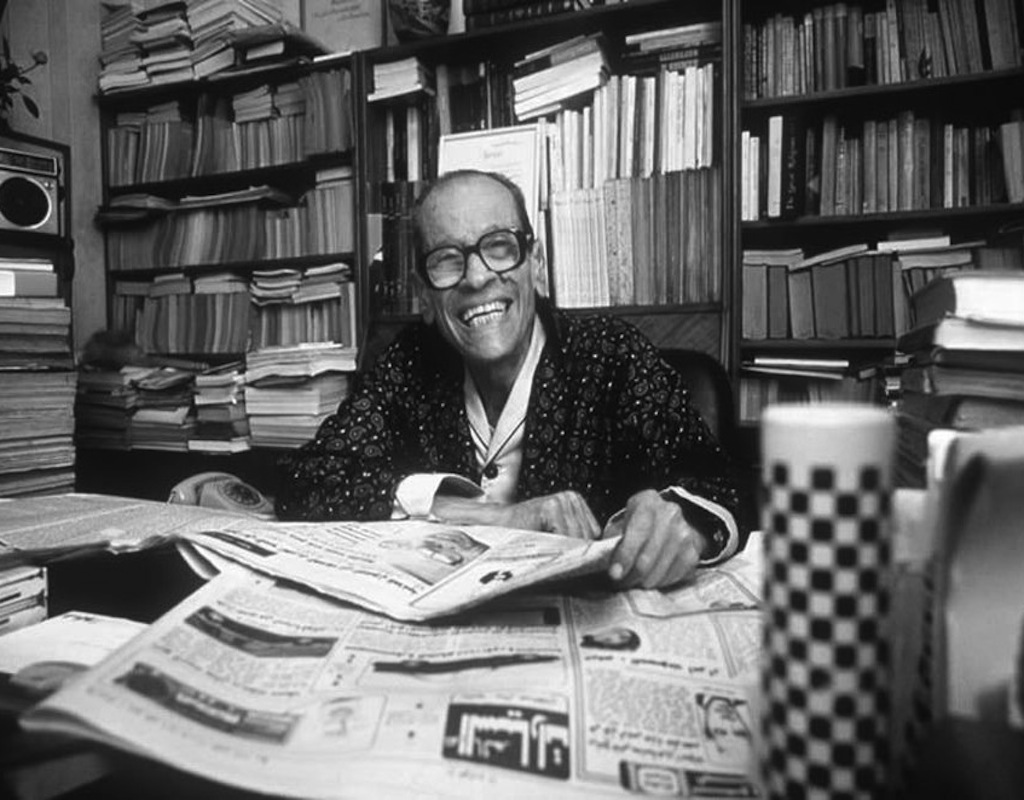
Yasser Arafat, the leader of the Palestine Liberation Organization (PLO), was awarded the Nobel Peace Prize in 1994, making him the first Palestinian laureate to receive this honor.
This recognition showed Arafat’s efforts to seek peace in the Middle East, particularly through the Oslo Accords, which aimed to establish a framework for resolving the Israeli-Palestinian conflict.
Arafat’s Nobel Prize underlined the complexities of achieving peace in the region, as it brought international attention to the Palestinian cause and the ongoing quest for statehood. This recognition marked a significant milestone for the Palestinian people and aimed to inspire further efforts toward lasting peace in the region.
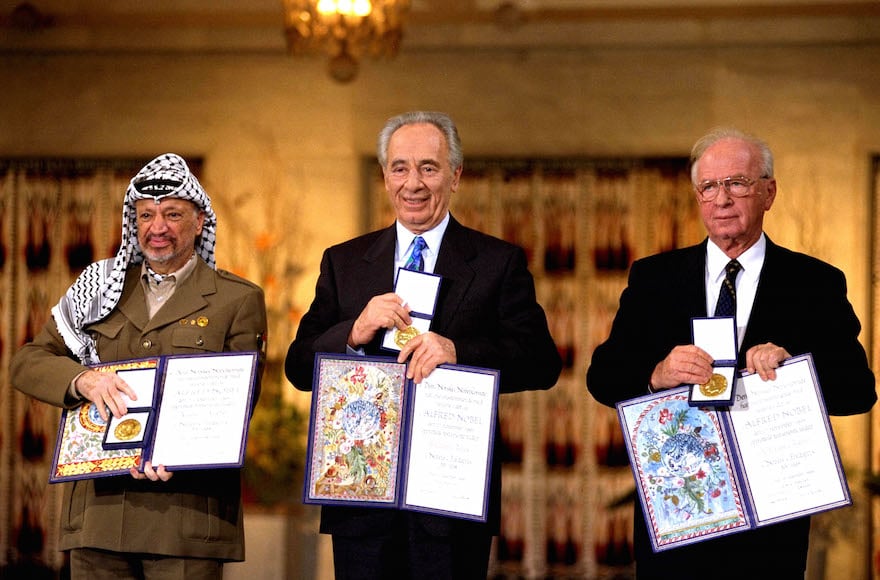
In the realm of science, Ahmed Zewail was awarded the Nobel Prize in Chemistry in 1999 for his groundbreaking work in femtochemistry, a field that allows scientists to observe chemical reactions at the atomic level.
Zewail’s innovative techniques, particularly the use of ultrafast lasers, enabled researchers to capture the dynamics of chemical processes in real time. Thus, transforming our understanding of molecular interactions.
His achievement marked a significant milestone, as Zewail became the first Arab to win a Nobel Prize in Chemistry.
Beyond his scientific accomplishments, Zewail was a passionate advocate for education and scientific development in the Arab region. He emphasized the importance of investing in research and fostering a culture of inquiry and creativity, addressing the challenges faced by Arab scientists in an underfunded and often overlooked environment.
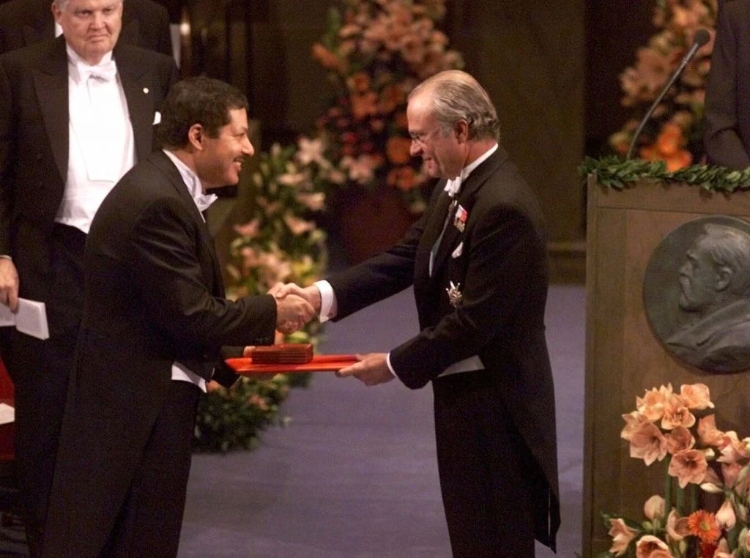
Another notable laureate is Mohamed ElBaradei, who received the Nobel Peace Prize in 2005, along with the International Atomic Energy Agency (IAEA). Their joint recognition was for efforts to prevent the proliferation of nuclear weapons and promote the safe use of nuclear energy.
ElBaradei’s influence extended beyond his Nobel Prize, particularly during the Iraq invasion in 2003. He played a crucial role in calling for a more measured approach, emphasizing the importance of diplomacy and thorough inspections over military intervention.
His stance brought international attention to the potential consequences of hasty actions and reinforced the need for collaborative efforts in addressing global security challenges.
Former Vice-President of Egypt as of 14 July 2013, ElBaradei noted the importance of global security and the need for peaceful solutions to complex international issues through his work.
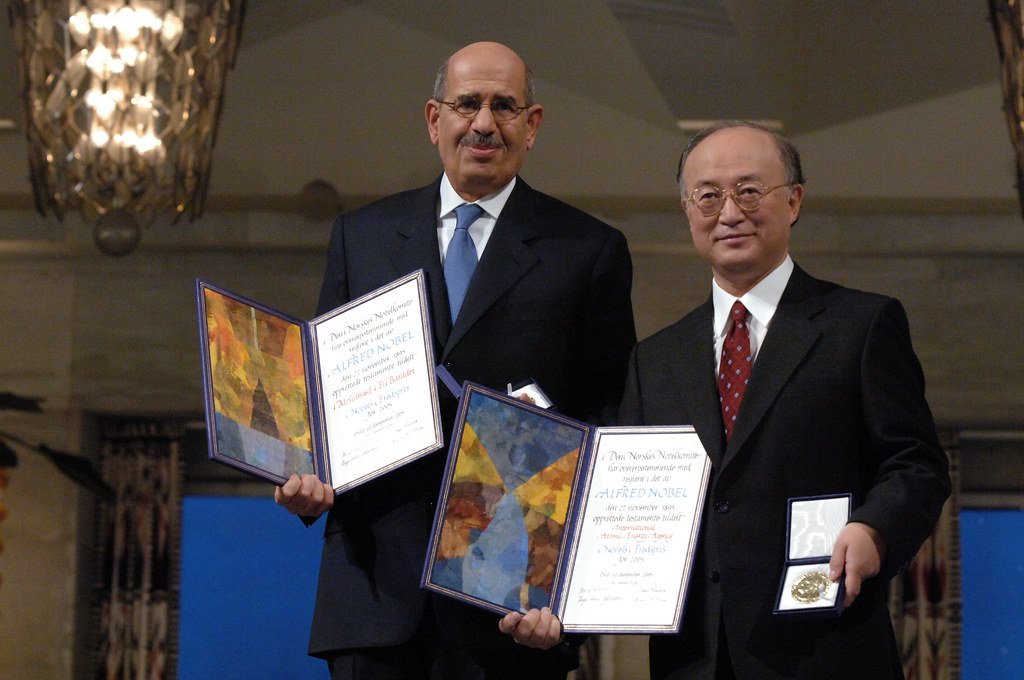
Tawakkol Karman, a prominent Yemeni journalist and activist, was awarded the Nobel Peace Prize in 2011 for her advocacy for women’s rights and democratic reforms during the Arab Spring.
Her recognition marked a significant moment in history, as she became the first Arab woman to receive this prestigious honor.
Karman’s work highlights the vital role women play in peacebuilding and social progress, particularly in regions experiencing political upheaval.
During the Arab Spring, Karman emerged as a leading figure in Yemen, mobilizing protests and calling for government accountability and the empowerment of women.
Her activism brought international attention to the challenges faced by women in the Arab world and focused on the importance of their participation in democratic processes. Karman’s Nobel Prize celebrated her individual achievements and served as a powerful symbol of hope and resilience for women everywhere.
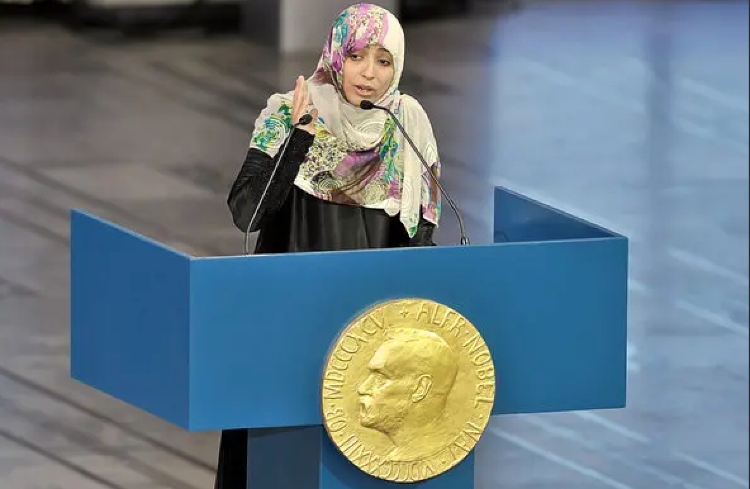
The Tunisian National Dialogue Quartet was awarded the Nobel Peace Prize in 2015 for its pivotal role in facilitating a peaceful transition to democracy following the Arab Spring.
This coalition of four organizations, comprised of the Tunisian General Labour Union (UGTT), the Tunisian Confederation of Industry, Trade and Handicrafts (UTICA), the Tunisian National Bar Association, and the Tunisian Human Rights League, came together to mediate dialogue among various political and social factions during a period of intense turmoil.
Their collaborative efforts were instrumental in promoting dialogue, reconciliation, and compromise in a context marked by political instability and social unrest. The Nobel Prize awarded to the Quartet stressed the importance of inclusive dialogue in achieving stability and democracy.
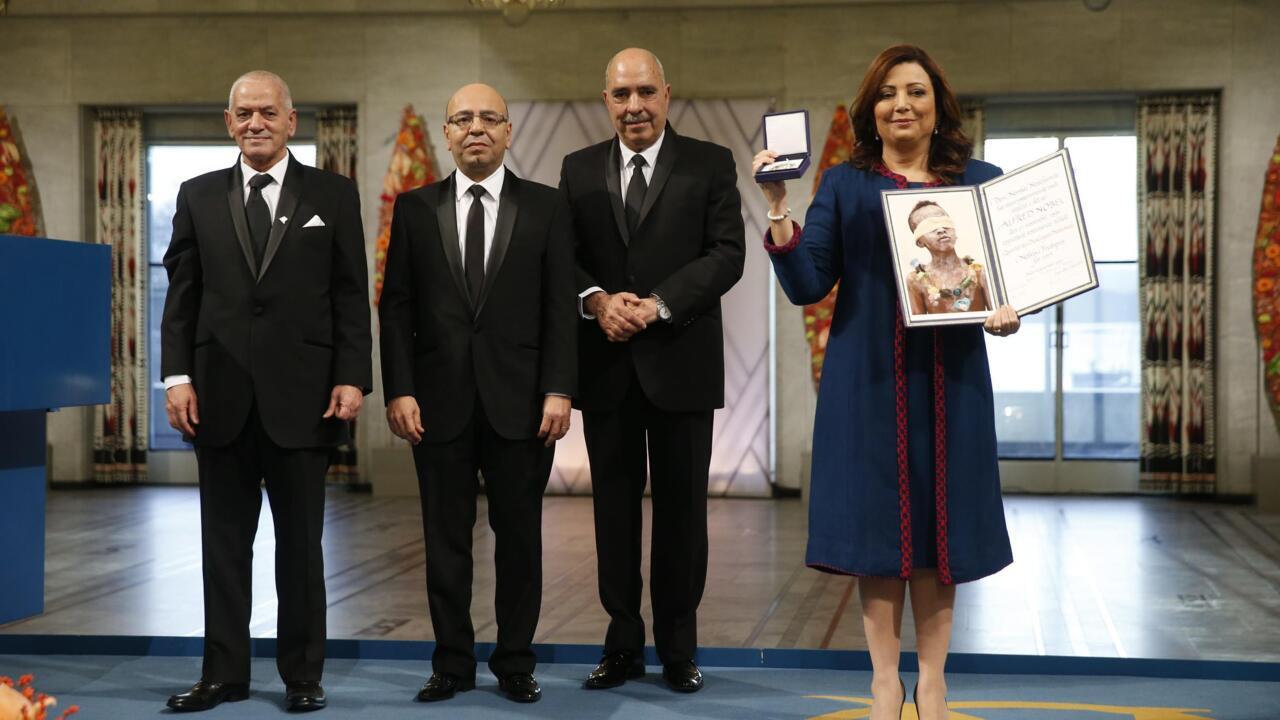
The achievements of Arab Nobel Prize winners reflect a diverse tapestry of contributions to global peace, science, and literature. Their legacies inspire future generations and demonstrate that the pursuit of knowledge and justice transcends borders.
However, in 2018, the Nobel science prizes concluded without any Arab laureates, continuing a trend observed over many years. The most recent recognition came in 2015 with Turkish-American Aziz Sancar, who clarified that he identifies as Turkish rather than Arab.
This leaves only four laureates with strong ties to the Arab world, highlighting a significant gap in scientific achievement compared to other regions.
The challenges faced by Arab scientists are profound, with underfunding and limited resources hindering their potential. Many researchers struggle to secure full-time positions, often relying on tutoring for financial support.
The Arab Thought Foundation has noted the lack of investment in research and infrastructure, with countries like Saudi Arabia and Tunisia spending a fraction of their Gross domestic product (GDP) on research and development. Consequently, many talented scientists seek opportunities abroad which results in a brain drain that further stifles innovation and scientific progress within the region.
